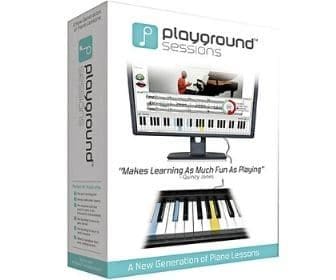Table of Contents
Introduction to Staying Motivated While Learning Piano
Learning to play the piano can be a deeply rewarding journey, but like any long-term educational endeavor, it
often comes with its own set of challenges. Among the most common hurdles is maintaining motivation. Whether you’re a beginner just starting out, or an intermediate player hitting a plateau, staying motivated is crucial for continuous improvement and enjoyment. This introduction explores essential strategies designed to keep your motivation high throughout your piano learning journey.
Setting Long-Term Goals
Establishing long-term goals is crucial for maintaining motivation when learning the piano. These goals provide a broader perspective and a sense of purpose. A typical long-term goal might involve attaining a certain level of proficiency, such as mastering a complex piece like Chopin’s Ballades or Beethoven’s sonatas within a few years. Another effective long-term objective could be preparing for a recital or a certification from a reputed music board, which not only validates your skills but also gives you a milestone to look forward to. It’s important to ensure these goals are challenging yet achievable, balanced with patience and the understanding that mastery is a gradual process.
Amazon Basics Wired Keyboard, Full-Sized, QWERTY Layout, Black
34% OffLogitech K120 Wired Keyboard for Windows, Plug and Play, Full-Size, Spill-Resistant, Curved Space Bar, Compatible with PC, Laptop - Black
$12.34 (as of April 12, 2025 10:56 GMT -07:00 - More infoProduct prices and availability are accurate as of the date/time indicated and are subject to change. Any price and availability information displayed on [relevant Amazon Site(s), as applicable] at the time of purchase will apply to the purchase of this product.)Logitech K270 Wireless Keyboard for Windows, 2.4 GHz Wireless, Full-Size, Number Pad, 8 Multimedia Keys, 2-Year Battery Life, Compatible with PC, Laptop, Black
23% OffRii RK100+ Multiple Color Rainbow LED Backlit Large Size USB Wired Mechanical Feeling Multimedia PC Gaming Keyboard,Office Keyboard for Working or Primer Gaming,Office Device
20% OffSetting Short-Term Goals
While long-term goals give you a destination, short-term goals are the steps along the way. These should be specific, measurable, and more immediate. Examples include setting a goal to practice a particular piece until you can play it without errors, or mastering a specific technique or piece of theory each week. Short-term goals could also involve performing for friends or family, which provides not only a deadline but an opportunity for supportive feedback. Incorporating regular evaluations of these goals can significantly enhance your motivation, as you gain a sense of accomplishment with each small victory.
Finding Enjoyable Pieces to Play
One crucial aspect of sustaining motivation while learning the piano is to find and play music that you truly enjoy. This can create a genuine enthusiasm for practice and improvement. It’s essential to find pieces that not only challenge you but also keep you engaged and excited about playing.
Identify Your Musical Preferences: Begin by identifying the styles or genres of music that resonate most with you. Whether it’s classical, jazz, pop, or film music, understanding what you love to listen to can lead you to what you’ll enjoy playing. This personal connection to the music can significantly enhance your motivation.
Choose Pieces at the Right Difficulty Level: While it’s inspiring to have a few challenging pieces in your repertoire, it’s important to balance these with pieces that are appropriate for your current skill level. Playing music that is too difficult can lead to frustration, whereas pieces that are too easy may become boring. Finding this balance can help maintain a sense of progress and accomplishment.
RockJam 61 Key Keyboard Piano Stand With Pitch Bend Kit, Piano Bench, Headphones, Simply Piano App & Keynote Stickers
$109.99 (as of April 12, 2025 22:23 GMT -07:00 - More infoProduct prices and availability are accurate as of the date/time indicated and are subject to change. Any price and availability information displayed on [relevant Amazon Site(s), as applicable] at the time of purchase will apply to the purchase of this product.)RockJam Compact 61 Key Keyboard with Sheet Music Stand, Power Supply, Piano Note Stickers & Simply Piano Lessons
17% OffYAMAHA P71 88-Key Weighted Action Digital Piano with Sustain Pedal and Power Supply (Amazon-Exclusive)
25% OffAlesis 88 Key Keyboard Piano with 480 Sounds, Speakers, USB MIDI, Carry-Bag, Stand, Headphones, Pedal and Piano Lessons for Beginners
$169.99 (as of April 12, 2025 22:23 GMT -07:00 - More infoProduct prices and availability are accurate as of the date/time indicated and are subject to change. Any price and availability information displayed on [relevant Amazon Site(s), as applicable] at the time of purchase will apply to the purchase of this product.)Discover New Music Regularly: Regularly seek out new pieces to keep your practice sessions fresh and exciting. This could involve looking for new compositions in your preferred genre, or exploring a completely new style of music. Changing up your musical routine prevents stagnation and keeps your practice sessions lively.
Listen to a Variety of Performances: Listening to different interpretations of the pieces you are learning can provide a fresh perspective and inspire you to develop your own interpretations. Additionally, attending concerts or listening to recordings can introduce you to new and interesting repertoire.
Set Goals with Your Choices: Use your choice of pieces to set specific, attainable goals. For instance, mastering a particular piece for a recital or family gathering can provide a tangible goal to work towards. Achieving these goals provides a sense of accomplishment that fuels further motivation.
Tracking Your Progress
Keeping a log of your achievements can significantly boost your motivation at every stage of learning piano. Starting a piano journal or using a digital app to record daily practice sessions helps to visualize improvements and identify areas that need more focus. Consider including details like the length of your practice, pieces played, scales learned, and any technical skills mastered. This documentation will serve as a clear indication of your evolving proficiency, which is incredibly rewarding over time.
Another effective method for tracking progress is through video recordings. By periodically filming your practices, not only can you witness your technical advancements, but you can also monitor your expressive and interpretative growth. Watching these videos over time can provide a real sense of achievement and helps in recognizing the subtleties in your play that need enhancement.
Celebrating Milestones
Acknowledging and celebrating milestones are crucial in maintaining enthusiasm and motivation. Set attainable goals, such as mastering a complex piece, achieving a new level in graded examinations, or having successful public performances. Whenever you reach these goals, reward yourself. Rewards could be anything from a new piece of music, a piano accessory, or even a concert ticket to see a professional pianist perform.
Organizing small, personal recitals or performances for friends and family can be a huge motivational boost. Sharing your progress not only validates your efforts but also encourages continuous improvement. Moreover, involving your peers in your learning journey can help keep morale high, ensuring sustained interest and passion in practicing the piano. Finally, do not hesitate to share your achievements on social media or piano-related communities; such interactions can be very inspiring and supportive.
Joining Online Communities for Support
Joining online communities can play a crucial role in maintaining motivation while learning piano. They provide access to resources, experienced guidance, and moral support from fellow learners. Here are some notable platforms:
Reddit Piano Community: A subreddit focused on all things piano, this forum acts as a support hub where you can share progress, ask questions, and find tips. Regular challenges and feedback threads help maintain your motivation.
Piano World Forums: These forums cater to all levels of piano players. Threads range from technical tips to motivational stories and buying advice. Engaging with other members through discussions and competitions can inspire you to keep improving.
Pianist Magazine Forums: Focusing on classical and jazz piano, these forums provide advice from expert pianists and educators. They also offer opportunities to discuss technique, repertoire, and performance anxiety.
Facebook Groups: Groups like ‘Adult Beginners Piano’ or ‘Piano Practice Motivation Group’ are excellent for learners seeking encouragement and practical advice. Here, you can post video recordings of your practice sessions and receive constructive feedback.
Discord Servers: There are dedicated servers for pianists where you can engage in real-time conversations about music theory, practice techniques, and more. Examples include ‘Piano Hangout’ and ‘The Classical Pianists’. Interactive regular voice chats can help you stay connected and motivated.
Overcoming Plateaus
Plateaus are a common part of any learning process, including mastering the piano. When progress seems to stall, motivation often wanes. To overcome these plateaus, consider changing your practice routines. Adding variety can challenge different skills, keeping your brain engaged. Set small, achievable goals within your practice sessions to create a sense of progress and accomplishment.
Another effective strategy is to record your practice sessions. This allows you to monitor your progress over time, and also to pinpoint specific areas needing improvement. Seeking feedback from teachers or peers can also provide new insights and techniques that can help push past these sticking points.
Finally, ensure you are balancing technique, sight reading, theory, and pieces in your practice sessions. This holistic approach prevents over-focusing on one area, which can lead to imbalances and plateaus.
Keeping Practice Fun
To keep piano practice from becoming a chore, inject fun into your routine. One way is to incorporate music you genuinely enjoy. Playing pieces that excite you can make practice something to look forward to. Alternatively, try to learn different styles of music, from classical to jazz or pop to broaden your musical abilities and keep your interest peaked.
Technological aids can also enhance fun in practice. Use piano learning apps which have interactive features and gamified learning systems. These can make the experience more engaging and entertaining, especially for younger students.
Finally, turn practice into a social activity. Play duets with friends or participate in local music groups and workshops. This can add a communal aspect to learning, making it more enjoyable and motivating. Regular performances, whether in formal recitals or casual settings, give you something to work towards and help maintain a high level of fun and engagement.
Conclusion
Staying motivated while learning the piano can be challenging, but by setting clear goals, celebrating small achievements, and maintaining a balanced practice routine, you can keep your motivation levels high. Regularly remind yourself of why you started and the joy that playing the piano brings you. Incorporate variety in your practice sessions and don’t hesitate to seek support from teachers or fellow learners. Most importantly, stay patient and kind to yourself as you progress on this musical journey.


































































